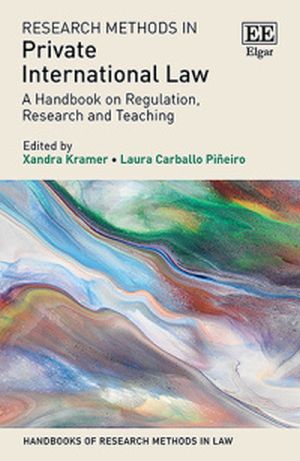
This incisive Research Handbook provides valuable insights into the various methodological approaches to Private International Law (PIL) from regulatory and educational perspectives. It comprehensively unpacks central themes in the field including international jurisdiction, recognition and enforcement, and scrupulously analyses core debates whilst addressing legislative and policy issues.
Featuring contributions from carefully selected eminent scholars, the Research Handbook is structured in three thematic sections. The first section explores the divide between public and private approaches to PIL regulation and research, covering human rights perspectives and key private initiatives in regulation. Moving on to address classical and modern research methodologies in PIL, the second section examines comparative law, empirical, economic and technical approaches and considers the influence of technology. The final section concludes with a discussion of crucial societal and educational aspects of PIL.
Research Methods in Private International Law will prove an essential reference for academics, researchers, and students of law with a particular interest in PIL, human rights law and research methods in law. Its practical focus on methodology will also be of benefit to policymakers and legal practitioners in the PIL field.